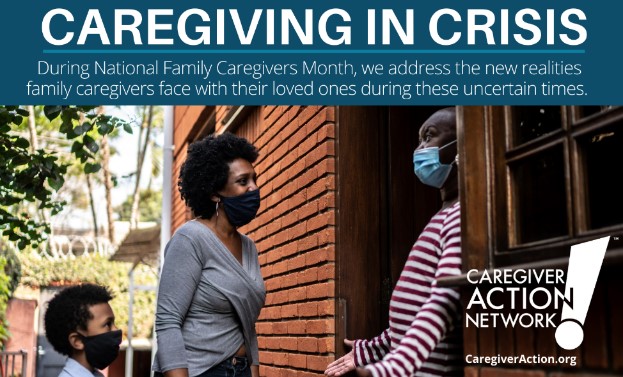
When Caregiving, Coronavirus, and Finances Collide
Before the pandemic, family caregivers were spending nearly $7,000 per year out of their own pocket when caring for an aging loved one with some estimates reaching as high as $8,700 per year if you live further away. How do caregivers find the money to do this? Caregivers report saving less for their own retirement or their kids’ education, putting off their own health care expenses and some caregivers even take loans or early withdrawals from their retirement accounts.
And then came job losses and economic uncertainty due to the pandemic. By July 2020, 30 million people were receiving some sort of unemployment insurance with many reporting that they felt “pushed to the brink”. Since at least 29% of the US population are caregivers, millions of family caregivers are currently experiencing some sort of financial hardship related to unemployment due to the pandemic.
Job loss and financial uncertainty cause stress. Caregivers already experience more stress than non-caregivers. According to the CDC, 38% of unemployed adults are currently experiencing anxiety or depressive disorder that is directly related to the pandemic. But the CDC took a deeper look at how caregivers’ mental health has been impacted by the pandemic, and concluded that family caregivers, who are currently providing critical aid to persons at increased risk for severe illness from COVID-19, had a higher incidence of adverse mental and behavioral health conditions compared with others. The CDC recommends that caregivers should be considered for future assessment of mental health, given the findings of the report and hardships potentially faced by caregivers.
This is a time of caregiving in crisis. And now, more than ever we need to help caregivers with their financial security and their stress. Caregiver tax credits, paid leave for caregiving, and Social Security earnings credits for caregivers all could help.
Caregivers can call the Caregiver Help Desk at 855-227-3640, the National Alliance of Mental Illness Hotline at 800-950-NAMI (6264), the Suicide Prevention Hotline at 1-800-273-8255, or their own health care provider for immediate help.
John A. Schall, M.P.P. (Chief Executive Officer, Caregiver Action Network)
Caregivers can call Thrive Alliance at 812-372-6918 to get connected to local resources.
Watch this space next Monday for information on another caregiving challenge: Caregiver Grief Comes in Many Forms: No matter how much we do as caregivers, it takes effort to feel we did enough, especially when we are trying to balance our complex roles. Depressive feelings of sadness and emptiness, anger, and guilt, are common – and isolating.
